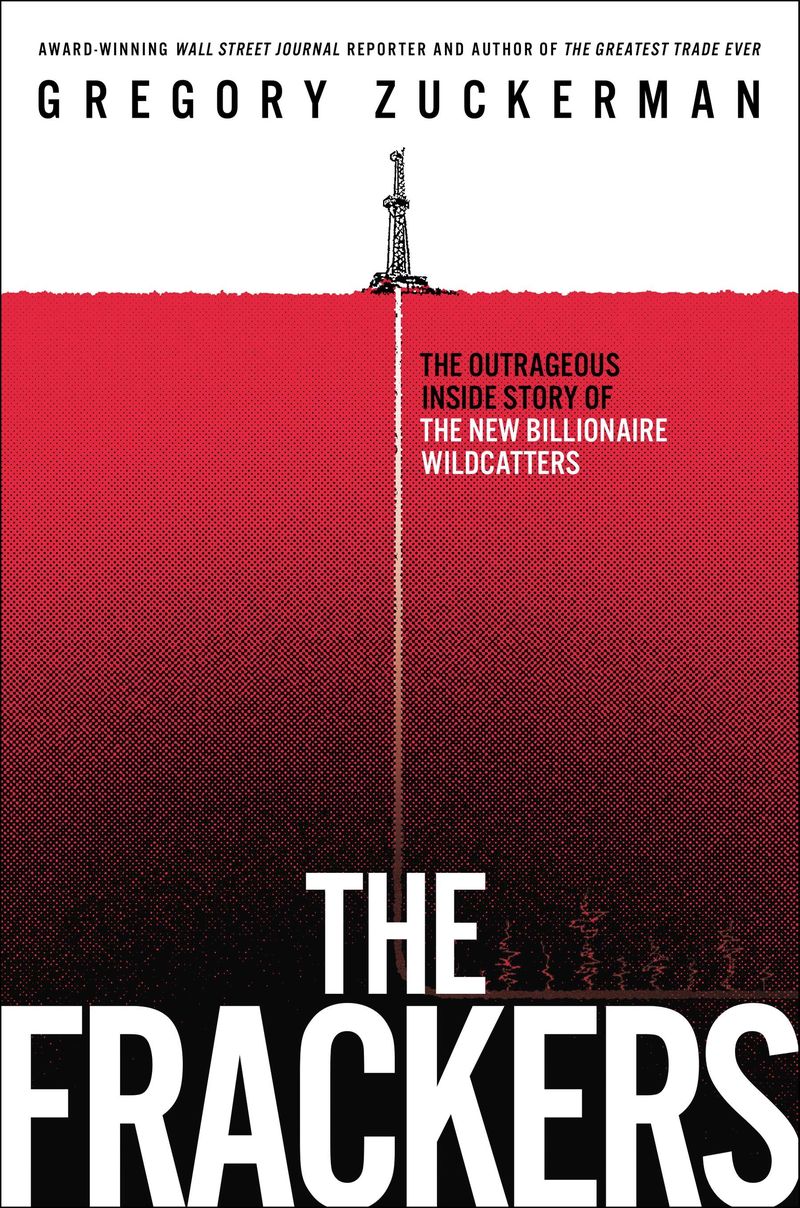
Gregory Zuckerman, special writer at The Wall Street Journal and the author of The Greatest Trade Ever and The Frackers: The Outrageous Inside Story of the New Billionaire Wildcatters (Portfolio Hardcover, 2013), profiles the men who "discovered" hydro-fracking as a profitable means to extract energy from shale and started the controversial industry.
→ EVENT: Gregory Zuckerman will be reading tonight at The Half King Bar & Restaurant, 505 W 23rd Street, at 7 PM.
Excerpt:THE FRACKERS: The Outrageous Inside Story of the New Billionaire Wildcatters by Gregory Zuckerman
George Mitchell wasn't out to change history. He just wanted to keep his company going.
It was the summer of 1998 and Mitchell Energy was sending huge amounts of natural gas each day from its Texas fields to a pipeline serving the city of Chicago. For decades, the arrangement had provided the company with steady profits, helping Mitchell become wealthy.
But his gas reserves were depleting, slowly but surely. Mitchell Energy’s shares were falling, the industry was on its back, and time was running out for both the seventy-nine-year-old executive and his business. A slow, inevitable decline seemed certain, one that Mitchell was desperate to avoid.
He convened a meeting of his top executives in a large conference room at the company’s headquarters outside Houston. They had been searching for new sources of natural gas for nearly two decades, a fruitless quest that left some of the management team frustrated. Mitchell was convinced their best bet was to try to unlock gas deposits from shale, a dense type of rock deep below Mitchell Energy’s acreage in North Texas. They had spent years drilling this rock, however, and it still wasn't working.
Larger rivals, such as Exxon, Royal Dutch Shell, and Chevron, already had shuttered operations trying to tap oil and gas from similar rock formations around the country. These huge companies headed off to drill in Africa, Asia, Brazil, and offshore locations. Almost any spot outside the United States appeared more promising than Mitchell’s Texas shale.
The United States was running on empty, just like Mitchell Energy. A growing dependence on foreign energy had pressured the country into costly foreign entanglements at least partly aimed at safeguarding sources of oil and gas, such as the invasion of Iraq seven years earlier after that country annexed Kuwait, a Gulf oil power. The United States would have to get used to a deeper reliance on foreign energy and additional military campaigns, it seemed, as Russia and other nations with vast energy re¬sources assumed greater power.
As the 1998 meeting got under way, Mitchell’s heir apparent, Bill Stevens, spoke up forcefully. The company was wasting its time, Stevens said. Even if they somehow could get a lot more gas to flow from this challenging rock, production costs likely would be too high to make much of it worthwhile. Drilling in the Texas shale wasn't worth the expense of leasing new acreage in the area, Stevens argued to Mitchell and the rest of the company’s board of directors.
Mitchell had been getting the same message from his son Todd, an experienced geologist who was on the company’s board. Shale drilling might be huge someday, Todd had said, but the company was spending too much on additional wells. Todd repeated his view over lunch, at family occasions, and in private meetings with his father. The company was piling on a frightening amount of leverage, Todd warned, and George Mitchell’s personal debts were at worrisome levels.
It seemed clear that George Mitchell was jeopardizing his company’s future with his stubborn pursuit of shale drilling.
Mitchell listened patiently to the skepticism at the board meeting. He said little in response, though, ending the meeting abruptly, leaving board members frustrated.
Later, Mitchell reached out to his geologists and engineers working on the Texas shale project. He told them he was sure they’d eventually find a way to get substantial amounts of gas from the shale.
“Keep going, it’s got to be there,” he said, trying to boost their spirits.
Privately, Mitchell had his own growing worries. “I thought perhaps they were right and it wouldn't work,” he recalls.
Mitchell couldn't share his concerns with any of his top executives, though, let alone discuss them with his team working in the field. This was Mitchell’s last shot. He had to give it a full try. “I had no choice, really,” Mitchell recalls. “We had to get the gas to flow.”
Running out of gas was a huge problem for George Mitchell and his company. He and his family of immigrants already had overcome a series of imposing obstacles, however. It gave him some hope he might succeed in the final quest of his life.
From the book THE FRACKERS: The Outrageous Inside Story of the New Billionaire Wildcatters. Copyright (c) Gregory Zuckerman, 2013. Reprinted with permission of Portfolio, a member of Penguin Group (USA) LLC, A Penguin Random House Company. All rights reserved.
